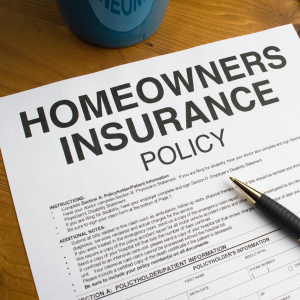
Comprehensive Guide to Homeowners Insurance: Key Considerations
Selling a home in Chicago, Illinois, can be smooth if you understand homeowners’ insurance policies. While selling a house, homeowners’ insurance safeguards against possible risks and liabilities.
Sellers need to review their existing policy to determine if additional coverage or adjustments are required, especially if the property will remain vacant. Ensuring your policy includes a liability clause for injuries sustained on the premises is equally essential, as prospective investor home buyers in Naperville and surrounding cities in Illinois can access the property for showings and inspections.
Moreover, sellers must pay attention to the insurance specifications set forth by the buyers’ mortgage lenders since these might impact specific negotiations and delay closings. Strategically working with a skilled insurance expert can identify underinsurance issues in real estate and develop tactics tailored for the Chicago region.
Having such core knowledge will reduce potential risks and improve the processes associated with home sales.
Understanding Homeowners Insurance Requirements in Chicago, Illinois
When selling a house in Chicago, Illinois, it is crucial to understand the homeowner’s insurance requirements specific to this region. The dangers and risks that may emerge when selling the property are mitigated by your residence being covered by a homeowners’ insurance policy.
While in Chicago, ensure your policy protects against all perils while the property is listed for sale. Hail and wind, common in Illinois, can cause significant damage to the property; hence, coverage for damages to the structure and personal liability, as well as protection from these damages, is a must.
Additionally, suppose your house remains vacant for an extended period during the selling process. Thus, checking whether your existing homeowner’s insurance policy has additional vacant home coverage to control the risks associated with unoccupied homes is pertinent. Knowing these specifics will protect your investment and ensure compliance with real estate laws about ownership transfer in the Greater Chicago Area.
Selling a House in Chicago: Essential Insurance Tips for Homeowners
Insurance tips for homeowners when selling a house in Chicago, Illinois:
- Maintain Coverage Until Closing
– Keep your homeowners’ insurance active until the sale is finalized to protect against risks like fire, theft, or injury on the property. - Demonstrate Responsible Ownership
– A well-maintained insurance policy can reassure buyers that the property has been adequately cared for. - Notify Your Insurance Provider
– Inform your insurer of the pending sale to clarify potential changes in coverage, cancellation procedures, or premium refunds. - Consider Additional Coverage for Showings
– If hosting open houses or extended showings, ask about temporary endorsements or liability riders for added protection. - Ensure Liability Protection
– Confirm your policy includes liability coverage if a visitor is injured during the selling process. - Review Policy Details for Gaps
– Double-check coverage limits, exclusions, and deductible amounts to avoid surprises during sales.
Understanding these insurance essentials can help ensure a smooth and protected sale in Chicago’s competitive real estate market. Home Sales Chicagoland can help guide you through every step.
Evaluating Liability Coverage: Ensuring Adequate Protection for Sellers

When selling a home in Chicago, Illinois, special attention to the liability coverage in your homeowner’s insurance policy is significant to ensure you are protected. Liability insurance protects homeowners from legal action in which injuries occurring on the premises during sales result in legal claims.
Reviewing your existing policy limits and considering whether additional coverage is necessary to shield against unforeseen incidents is essential. In a bustling city like Chicago, where open houses and showings can increase foot traffic, the risk of accidental injuries may rise.
Maintaining adequate liability insurance protects the finances from medical or legal expenses from such accidents. People selling homes should consult their insurance agents to ensure policies have appropriate liability coverage limits commensurate with the distinct challenges and risks associated with home sales in the Metropolitan Chicago area.
Legal Requirements for Selling Property in Illinois: What You Need to Know
Every seller, especially in Chicago, must know the legal aspects of homeowners’ insurance while selling a property. Illinois law requires the seller to disclose all material defects to the buyer, including things usually part of homeowners’ insurance, like structural damage and water damage from prior leaks.
Sellers must complete a Residential Real Property Disclosure Report outlining the property’s condition. They must also check their current homeowner’s insurance policy to ensure that coverage is maintained until after closing, when the sale is executed.
This helps eliminate some improbable risks when making the sale. Understanding these prerequisites fosters compliance with controlling regulations relating to the Illinois real estate framework and simplifies potential problems buyers may have, greatly expediting the process.
Navigating these complexities as intended is best managed by contacting a local Illinois real estate lawyer or a knowledgeable local agent, as recommended. Contact us today to connect with trusted professionals in your area.
Top Factors Influencing Homeowners’ Insurance Rates in Urban Areas
Key factors that influenced homeowners’ insurance rates:
- Population Density and Crime Rates
– Higher population density and increased risk of property crime in urban areas like Chicago often lead to higher insurance premiums. - Age and Condition of the Home
– Older homes with outdated systems (e.g., electrical or plumbing) may be more risky, increasing premiums. - Proximity to Emergency Services
– Homes closer to fire stations or emergency response teams typically receive lower insurance rates. - Risk of Natural Disasters
– Properties in flood zones or areas prone to storms or other natural disasters may have higher insurance costs. - Local Market Conditions and Construction Costs
– Rising home values and construction expenses in the area can influence rebuilding costs and thus affect premiums. - Neighborhood Safety Ratings and Claims History
– Insurers evaluate local crime statistics and past claims in the area to assess overall risk.
How to Bundle Policies to Save on Your Overall Home and Auto Insurance

According to some information, one makes a deal in Chicago, Illinois, to sell a house. It is pretty convenient if insurance policies are bundled. Moreover, combining your auto and homeowner’s insurance with the same company can bring bigger savings.
Many insurance companies offer bundled policy discounts to encourage customers to consolidate their coverage. This method simplifies policy configuration and improves savings because bundled packages have lower premium rates.
Every dime counts when selling a home; thus, bundling can instigate financial relief while lowering overall expenditure on sustaining essential coverage. Using comparison tools is recommended, as some insurance companies in Chicago might have better packages and attractive bundles explicitly designed for you.
Seasonal Considerations for Adjusting Your Homeowners Insurance Coverage
As a homeowner in Chicago, Illinois, selling your house means you must consider seasonal changes in your insurance coverage for the Windy City. The City’s climate, which includes rough winters plus hot and humid summers, impacts your property’s risk profile and potential buyers’ views.
Severe weather conditions and heavy snowfall can prove especially harmful to sensitive proprietary claims assets like roofs and pipes. For such cases, appropriate insurance protection should be arranged.
As spring arrives, melting snow and heavy rains might cause flooding or water damage, necessitating a review of flood insurance options. During summer, policy reviews while insuring against thunderstorms and strong winds are crucial as they pose a risk to property damage.
During autumn, gutters could get blocked, causing the leaves to overflow; therefore, liability insurance must be preserved. Protecting one’s policy aids in safeguarding investments. It boosts purchaser trust by illustrating proactive infrastructure upkeep and risk mitigation in the Windy City’s weather.
Navigating Homeowners Insurance Claims: a Step-by-step Approach
When selling a property, particular focus must be given to the details of a homeowner’s insurance policy. Review your policy details to understand the most essential aspects, coverage limitations, exclusions, and how they affect the claims process.
Before putting your house on the market, taking videos or photographs of any damage or potential issues is very helpful. At the time of the incident, notify your insurer of the claim and provide commensurate documentation, such as estimates of the work to be performed and receipts.
Collaborating with your insurance adjuster can accelerate the timeline for processing claims and ensure appropriate reimbursements for losses sustained. In addition, observe how the filing date for the claim aligns with the closing date for the sale; open claims could obstruct negotiations with potential buyers.
Your understanding of the Chicago real estate market and proactive approach to managing homeowners’ insurance claims will mitigate risk and enhance efficiencies during the sales process.
Comparing Different Types of Homeowners’ Insurance Policies Available

While selling your home in Chicago, Illinois, knowing the different types of insurance policies available for homeowners’ insurance will help you make a sound decision. HO-3 policies are an example of book class policies, which are very popular. These policies have a reasonable limit on the coverage for your home and personal possessions.
HO-5 policies cover additions and other structures, but they tend to be more expensive. Homes with unique traits or older features will benefit more from restrictive policies since those insurers attribute them based on actual cash value rather than replacement value and accommodate homes that are non-compliant with current building codes.
Moreover, some sellers might choose a dwelling coverage only policy if their primary concern is the protection of the structure rather than the contents inside the personal property. Each of these options comes with trade-offs, and to provide adequate security during the selling process in Chicago’s ever-changing real estate landscape, sellers need to think through their specific property and financial situation meticulously.
Do You Get a Refund on Homeowners Insurance When You Sell?
While selling a home in Chicago, the specifics associated with homeowners’ insurance, especially possible refunds, beg your attention. A Chicago homeowner may qualify for a refund on the homeowner’s insurance premium if the property is sold before the policy’s expiry date.
As a rule, this refund is determined by the unconsumed portion of the premium paid for the policy forfeited. To execute this successfully, immediately call your insurance company and order the cancellation and refund.
It is imperative to provide them with all the essential details of a document. Refunds can differ based on the payer’s option and the insurer’s guidelines.
Being well-informed about these details ensures you maximize any available refunds when selling your Chicago home, making it an integral part of managing financial aspects during this transition.
Common Pitfalls to Avoid When Buying Homeowners Insurance in Chicago
Like any other metropolitan area, Chicago has its share of homeowners’ insurance blunders. One of the most impactful of these that an individual might encounter in the Windy City is failing to overvalue their home alongside their inventory, as it leads to undercoverage.
For example, problems can arise in the broader Chicago real estate market when property values fluctuate dramatically as the value graphs increase. Another error often made is not updating your policy after significant alterations, which is problematic due to insufficient coverage and increased property value.
Many policyholders ignore specific exclusions like flood and earthquake coverage, which may need additional endorsements in Chicago’s distinct climate. Also, homeowners are encouraged to obtain quotes from multiple insurers to avoid paying too much for too little protection.
Refrain from making blanket assumptions that all policies fit the same; tailor your policies as necessary to mitigate possible risks for specific Chicago neighborhoods. Lastly, not regularly revising and updating your policy due to changing conditions or market trends may result in unanticipated costs when selling.
What Is the 80% Rule in Homeowners Insurance?
While selling a home in Chicago, Illinois, especially when dealing with homeowners’ insurance, the 80% rule is significant. The 80% rule means a homeowner must hold a policy with a coverage limit of at least 80% of the home’s replacement value to get full indemnification for partial losses.
This means that if a covered peril damaged your property in Chicago, and you have not insured your home up to this threshold, your insurance may only cover a portion of the repair costs. For example, if the replacement value of your home is $500,000, you should have at least $400,000 in coverage.
This gives possible buyers confidence and helps you to avoid potential financial loss. Reviewing and changing your homeowners insurance policy per the 80% rule will help you sell your home for cash in Aurora, Chicago, and other cities in Illinois and protect your investment.
What Happens to Homeowners’ Insurance When a House Is Sold?
If you’re selling a house in Chicago, Illinois, consider the changes it will make to your homeowner’s insurance policy. Your homeowner’s insurance does not pass to the new owner upon the sale of the property; it usually becomes canceled when the house is sold.
Suppose you are a homeowner in the process of selling your home. In that case, you need to have an active homeowners insurance policy in place until the deal is complete to protect you against loss or damage arising before the deed is executed. It’s best for vendors to immediately, after closing, get in touch with their insurer to cancel the policy and apply for a refund on any remaining premium attributable to the period after the cancellation.
Meanwhile, buyers should ensure they have secured their own homeowners insurance effective on their closing date to safeguard their new investment. Understanding these aspects of homeowners’ insurance when selling a house in Chicago helps ensure a smooth transition and protects both parties involved in the real estate transaction.
When Should I Cancel My Homeowners Insurance When I Sell My House?
When selling your house in Chicago, Illinois, it’s crucial to understand the right timing for canceling your homeowner’s insurance. Many homeowners wonder when they should terminate their policy during the home-selling process.
Ideally, you should maintain your homeowners insurance coverage until the closing date of the sale is finalized and ownership has officially transferred to the buyer. This protects against unforeseen damages or liabilities that may occur while you still hold legal responsibility for the property.
Canceling too early could leave you vulnerable to risks, such as accidental damage or natural disasters, which could jeopardize the transaction. Consult with your real estate professional and insurance provider to confirm that all necessary steps are taken before you cancel your homeowners insurance policy.
This strategic approach safeguards your interests and ensures a smooth transition during the home-selling process in Chicago, Illinois.
Are You Supposed to Get Homeowners Insurance Before Closing?
Understanding the nuances of homeowners’ insurance is crucial when selling your house in Chicago, Illinois, especially regarding closing. Maintaining homeowners’ insurance coverage is essential before closing the sale of your home.
This coverage protects against unexpected damages or liabilities that may arise before ownership officially transfers to the buyer. In Chicago’s real estate market, sellers often wonder if they need homeowners insurance until closing; the answer is a resounding yes.
Without adequate homeowners’ insurance, you risk financial exposure from potential hazards such as fire, theft, or natural disasters that could occur before the transaction finalizes. Additionally, lenders typically require proof of continuous homeowners’ insurance coverage up to closing as a safeguard for both parties involved in the sale.
Therefore, ensuring your policy remains active until ownership changes hands is a critical step in successfully navigating the home-selling process in Chicago.
Is selling your residence necessary? If you prefer a hassle-free sale, avoid costly repairs, or sell quickly, Home Sales Chicagoland can assist. We ensure a seamless process, handle all the details, and offer fair cash. Are you prepared to sell, or do you have any questions? Please contact us at (773) 663-4505 for a free, no-obligation offer. Commence immediately!
| POLICYHOLDERS | BUSINESS INSURANCE | HOME INSURANCE | ILLINOIS STATE CAPITOL | SPRINGFIELD | REAL ESTATE LAWS |
| INVESTMENTS | NERDWALLET | HOME OWNERSHIP | ZIP CODE | CONSUMER | STATE FARM |
| ALLSTATE | FLOOD RISK | INSURANCE DEDUCTIBLE | AMERICA | U.S. | FIRE INSURANCE |
| PROPERTY AND CASUALTY INSURANCE | LEGAL LIABILITY | INFORMATION | IDENTITY THEFT | CUSTOMER SERVICE | BANK |
| PROPERTY OWNERSHIP | NATIONAL ASSOCIATION OF INSURANCE COMMISSIONERS | NAIC | LAWS | TRANSACTION FEES | AVERAGE |
| UNDERWRITTEN | WARRANTY | TAXES | TAX | REAL ESTATE AGENTS | PAYMENT |
| OUT OF POCKET | OUT-OF-POCKET | NEW YORK | NEW YORK, NEW YORK | NFIP | NATIONAL FLOOD INSURANCE PROGRAM |
| NATIONAL FLOOD INSURANCE PROGRAM (NFIP) | METHODOLOGY | J.D. POWER | ILLINOIS DEPARTMENT OF INSURANCE | INVESTMENT ADVISER | CONDO |
| GREATER CHICAGOLAND AREA | CHICAGO METROPOLITAN AREA | SUBURBS OF CHICAGO | TECHNOLOGY | SEWER | LOAN |
| LIFE INSURANCE | SMART HOME TECHNOLOGY | FINRA | FENCE | ELECTRONICS | |
| CALIFORNIA | IS HOMEOWNERS INSURANCE | YOUR HOME INSURANCE | INSURANCE IN ILLINOIS | HOME INSURANCE POLICY | THE NATIONAL AVERAGE |
| HOMEOWNERS INSURANCE IN ILLINOIS | THAN THE NATIONAL AVERAGE | AVERAGE COST OF HOMEOWNERS | INSURANCE IN ILLINOIS IS | OF HOMEOWNERS’ INSURANCE IN | COST OF HOMEOWNERS’ INSURANCE |
